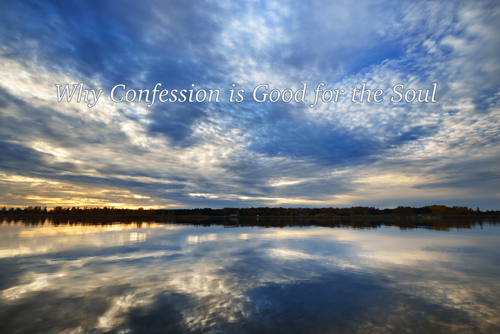Our blog title today shares an old saying, “Confession is good for the soul.”
In this brief series, let me share about three areas of confession and why “Confession is good for the soul.” Part 1 will about confessions to the people closest to us: our spouse, fiancé, or a serious boyfriend or girlfriend.
Examples of Secrets
We usually confess our deepest and darkest secrets. But what are secrets? A secret may be an activity, habit or addiction around alcohol or drugs, a gambling issue, food addiction, or struggles with pornography or having an affair.
Another type of secrets may be around issues pertaining to money. You may owe the IRS a great deal of money, for example. You know the truth, but your partner may not know the truth.
Other secret areas may be from your past. These secrets may include past relationships, past struggles with a habit or an addiction, abuse in your history, an abortion, or any other regretful moments in life that still cause pain, shame, or discomfort for you. These secrets can and do impact current relationships.
Secrets Can Be Harmful
I have worked with many individuals, couples and families where the lack of honesty is detrimental to the relationship.
The secret might be wrongly kept private out of guilt and shame, or the fear of either hurting the other person, or worse, losing them. In the meantime, the holder of the secret my construe to struggle, even indulge, in the hopes the stronghold or habit may be a private matter that is not harming anyone, or that in time the private secret will work itself out and not be a problem any longer.
The problem with hiding the secret activity is this … it is hurting you and others. Just because they do not know something is wrong or the exact nature of the secret, they are being impacted. They are affected by your diversion, by your fear of being caught, your dishonesty and lies if confronted about having a problem. “No, not me. You’re just paranoid or crazy, dear.”
Rationalization is Deceptively Dishonest and Wrong
We call the reasons for hiding things from our partners “rationalization”. Or better put, rational-LIES!
Over time, the growing consequence of the problem slowly and indirectly leaks out, or evidence of a private habit or addiction is discovered. Now the mess of downplaying the problem is front and foremost, and the suspicions and loss of trust going forward become a shadow over the relationship. In many cases the truth of the secret and the deception casts a shadow over the relationship for years, even the possibility of the relationship ending. All because one person was caught with a secret that the other “innocent” party had no awareness or voice in.
What is Needed? Confession
A related term used for confession is the word “disclosure.” Disclosure is the voluntary revelation of one’s hidden thoughts and secrets activities with one who needs to know.
Ideally, it is best to confess and disclose before being caught in the deep. But unfortunately, many people don’t confess before being caught.
My Advice: Full Disclosure
Please take the honest, courageous and caring route by confessing to the person or persons who have been impacted by your secret(s). They deserve to know what and how things have impacted their lives, knowing or with some suspicions.
But also, whether confessing before getting caught or afterwards, please provide full disclosure to them and also allow them to ask questions.
Disclosure includes two areas: categories and content. Begin with the categories. These include the general area(s) of the secret activity. It proves the what, when, why and with whom the secret behavior involved.
Content has to do with the details. Elaborating on the dollar amount, the locations, the parties’ involved and other detail of the activities is also important most of the time.
Step 9 of Alcoholics Anonymous cautions about sharing details that may cause more harm than be of help. This is an area to weigh and pray about if details about pornography or an affair may cause more harm and confusion then help.
Why Provide Discourse?
A final reason to disclose is this: if your partner had to catch you in a long held secret and lie, he or she can feel betrayed, distrustful and act detached. But they may also become more fearful and vigilant. They may watch over you closely for signs the secret is continuing or for become an investigative detective looking for more information.
By confessing and disclosing even after being caught, the fear of more information coming to light is removed. This can help with re-establishing trust and healing relationships. But if details, “omissions,” or more facts come out later after trust is being re-stored, then the harm to the relationship is magnified, even compounded.
Help for Disclosure
I offer my time to assist you and your spouse, fiancé, or boyfriend/ girlfriend with disclosures. And if you have attempted to share and move forward together but without healing and restored quietness, then I especially invite you in for help.
Christian counselor Dr. Douglas Frey believes in Biblical principles and bringing forth God’s grace in meetings and sessions. Call or email Douglas Frey Ph.D. (952-920-2789). He is a licensed Christian counselor serving individuals and families in Eden Prairie and nearby Chanhassen, Chaska, Shakopee, Minneapolis, Edina, Minnetonka and other Twin Cities Western Suburbs.

